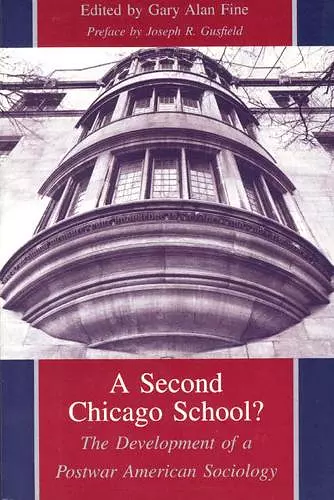A Second Chicago School?
The Development of a Postwar American Sociology
Format:Paperback
Publisher:The University of Chicago Press
Published:14th Sep '95
Currently unavailable, and unfortunately no date known when it will be back

From 1945 to about 1960, the University of Chicago was home to a group of faculty and graduate students whose work has come to define what many call a second "Chicago School" of sociology. Like its predecessor earlier in the century, the postwar department was again the center for qualitative social research - on everything from mapping the nuances of human behaviour in small groups to seeking solutions to problems of race, crime and poverty. Howard Becker, Joseph Gusfield, Herbert Blumer, David Riesman, Erving Goffman and others created a large, enduring body of work. In this book, sociologists critically confront this legacy. The eight original chapters survey the issues that defined the department's agenda: they focus on deviance, race and ethnic relations, urban life and collective behaviour; the renewal of participant observation as a method and the refinement of symbolic interaction as a guiding theory; and the professional and institutional factors that shaped this generation, including the leadership of Louis Wirth and Everett C. Hughes; the role of women; and the competition for national influence Chicago sociology faced from survey research at Columbia and grand theory at Harvard. The contributors also discuss the internal conflicts that call into question the very idea of a unified "school".
ISBN: 9780226249391
Dimensions: 23mm x 16mm x 3mm
Weight: 652g
436 pages